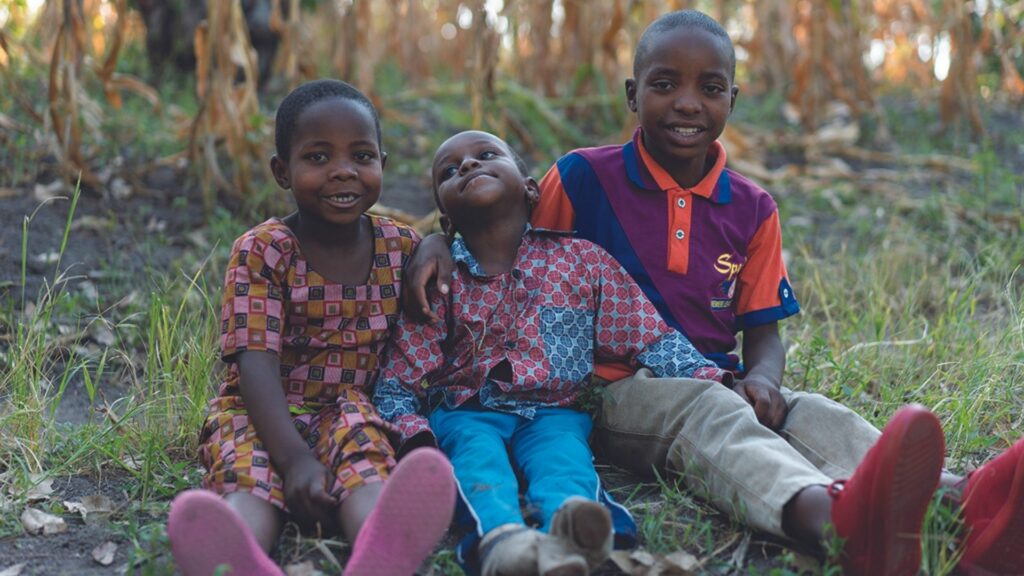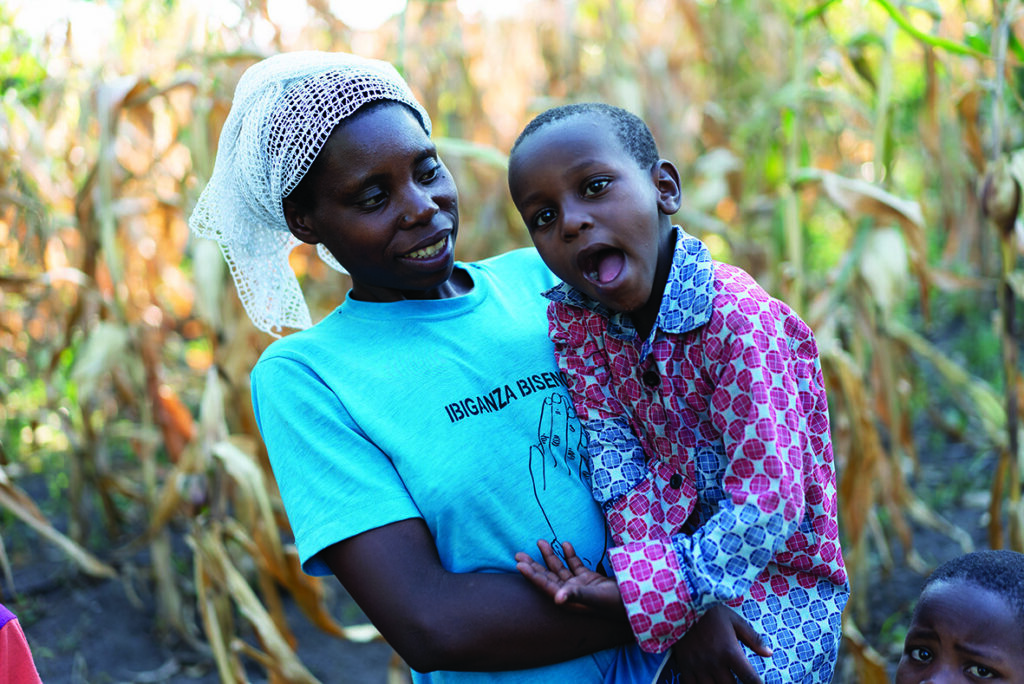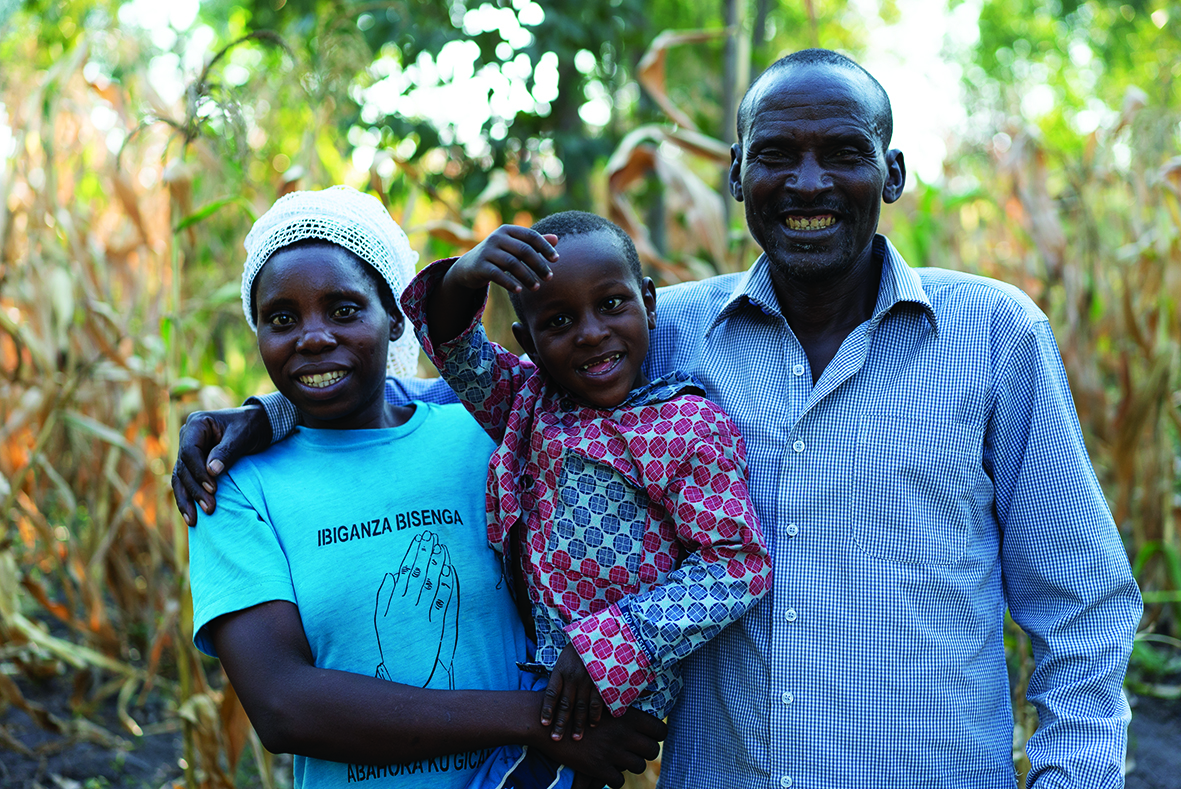By giving his parents the support they needed to meet his additional needs, our team in Rwanda brought Carrol home from the orphanage and back to the people who love him.
Soon after Carrol was born, his parents began to worry that he wasn’t developing as he should. His mum, Mubyeyi and his dad, Kubana, knew something was wrong because Carrol has a twin sister, Estrella, and the difference between the two babies was stark. Mubyeyi and Kubana were desperate to do their best for Carrol but with little free support for children with additional needs in their area, they didn’t know where to turn. Then they heard about an orphanage in another district, a long way from their home, which cared for children with mental and physical disabilities. It seemed their only hope.
But orphanages do not protect children, they harm them. Decades of reliable research show that orphanages expose children to neglect and abuse and damage their development. Because the last thing that any orphanage can provide is the first thing every child needs; someone to love them.
Carrol was taken to the orphanage when he was three and spent two years there, fending for himself in poor conditions alongside scores of other children and young adults with severe learning and physical impairments. His parents visited whenever they could and worried for his future but could see no other option for their child.
Since 2012, Hope and Homes for Children has been working in partnership with the Rwandan Government to help deliver its groundbreaking commitment to close the country’s orphanages and make it possible for all children to grow up in safe and loving families.

In 2018, our team began working with their local authority partners to close the orphanage where Carrol lived and reunite the children with their parents or other close relatives by making sure that families have the support they need to care for their children at home. Two members of our skilled local team of child protection professionals in Rwanda were assigned to support Carrol and his family through the reunification process.
Richard, an experienced child psychologist, spent time with Carrol’s parents, explaining why the orphanage was not the right place for their son. He gave Mubyeyi and Kubana the confidence to believe that, with the right support, they could bring Carrol home and care for him themselves.
“The beautiful part of the story is that as we explained to parents the kind of miracle that the parent-child attachment can provide to a young child, they immediately embraced the idea of bringing Carrol home, Richard remembers. “They were willing to endure all the sacrifices they have to make to keep their child with them. It was amazing to see their willingness,” he adds.
Richard’s colleague, Bonaventure, is Carrol’s case manager. A trained social worker, he prepared Carrol to leave the orphanage and made sure his family had access to the resources, support and information they needed to care for him long-term.
In December 2018, Carrol and his family were reunited and now he is where he belongs, back at home with the people who love him.
Bonaventure will continue to monitor Carrol’s case and make sure he stays safe and happy. So far, he’s very pleased with the way that Carrol has adapted to being back at home.
“Carrol’s favourite toy is his tennis ball and he loves playing catch with his twin, Estrella, and his big brother, Eric. He is growing stronger and more mobile everyday,” Bonaventure reports.
Having Carrol home again has been good for everyone. “We used to be distressed, wondering how our child was being treated in the institution but now we are quite sure of how he is treated because he is in our hands,” Carrol’s Mum, Mubyeyi confirms.
Bonaventure’s next goal is to secure a nursery place for Carrol so that he can play and learn alongside, Estrella, and the other children in his community.
In the meantime, Carrol’s mum and dad have built a wooden bar in the back yard to help him learn to stand and walk and, with their love and encouragement, he is making progress every day.
With your support, we can reunite families torn apart by orphanages and bring children home to the people who love them.
Always family. Never orphanages.

Rwanda: the first African Country to commit to closing all its orphanages
Hope and Homes for Children has been operating in Rwanda since 2002, successfully working on a number of family and community based initiatives. Since 2010 we have been supporting the Government of Rwanda in the elimination of institutions throughout the country and on the development of a national child protection system that minimises family separation and provides family-based alternatives when necessary.
Our team assisted with the closure of 13 orphanages across the country including Rwanda’s oldest and largest institution Orphelinat Noel de Nyundo and helped transition over 1,300 children into families and communities.
In 2012, the Rwandan Government becomes the first government in Africa to commit to closing orphanages. Since 2012, the number of children without disabilities in orphanages there has reduced from 3,500 to 500. There are still 4,300 children with disabilities in orphanages in the country today.
